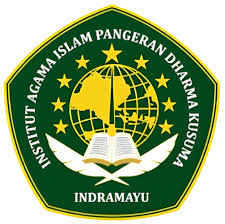Emotional Readiness Towards Marriage Analysis of Household Financial Management Reviewed According to Islamic Family Law
Case Study on Youth of Ideal Marriage Age in Indragiri Hilir Regency
DOI:
https://doi.org/10.55656/tjmes.v6i2.336Keywords:
Emotional, Ideal Age for Marriage, Islamic Family LawAbstract
This research discusses the Emotional Readiness Towards Marriage Analysis of Household Financial Management Reviewed According to Islamic Family Law Case Studies on Youth of Ideal Marriage Age in Indragiri Hilir Regency. The problem in this study is the high number of unmarried youth in Indragiri Hilir Regency based on data obtained from the Central Bureau of Statistics and the increasing number of unmarried youth in the last 3 (three) years. It also discusses the emotional readiness efforts of young people of ideal marriage age in Indragiri Hilir district with the analysis of Household Financial management, and the review of Islamic Family Law. The purpose of this research is the effort of emotional readiness in young people of ideal marriage age with the analysis of household financial management, and the review of Islamic Family Law. The research method used is field research, which starts from data collection: questionnaires / questionnaires, observation, interviews, and documentation. The data will be traced in the relevant literature. The results showed that emotionally the picture is positive about the readiness of the younger generation in facing married life. youth aged 19-26 years, the majority showed good emotional readiness, feeling emotionally ready to face challenges in marriage and able to manage emotions in conflict situations. In terms of financial management, the youth consider financial management as an important factor, with most having prepared a budget plan and believing that saving and investing are important steps to achieve family financial stability. In terms of Islamic family law views, respondents accepted the concept of nafkah as an obligation of the husband to the wife and felt it was important to manage household finances in accordance with Islamic principles, and showed readiness to discuss property rights and management in accordance with Islamic law.
References
Abdurrahman. (1978). Masalah-masalah Hukum Perkawinan di Indonesia. Alumni.
Abu Lihyah, N. (2010). Halal Haram dalam Pernikahan. Daar Al-Kutub Al-Hadits.
Anam, K. (2019). Studi Makna Perkawinan dalam Perspektif Hukum di Indonesia. Yustitiabelen, 5(1), 59–67.
Badan Pusat Statistik Indragiri Hilir. (2022). Statistik Kesejahteraan Rakyat Kabupaten Indragiri Hilir 2022. BPS.
Badan Pusat Statistik Kabupaten Indragiri Hilir. (2021). Statistik Kesejahteraan Rakyat Kabupaten Indragiri Hilir 2021. BPS.
Badan Pusat Statistik Kabupaten Indragiri Hilir. (2023). Statistik Kesejahteraan Rakyat Kabupaten Indragiri Hilir 2023: Vol. IX. BPS.
Busyro. (2020). Pengantar Filsafat Hukum Islam. Kencana.
Dahlan, Abd. R. (2010). Ushul Fiqih. Amzah.
Fuady, M. (2018). Metodologi Riset Hukum. Raja Grafindo Persada.
Hadi, A., Ridwan, R. B., & Sutarto, S. (2022). Bimbingan Pranikah dan Dampaknya terhadap Pemahaman Kehidupan Rumah Tangga di Kecamatan Curup Tengah Kabupaten Rejang Lebong. Jurnal Literasiologi, 8(2), 556–626.
Hayati, S. A., & Prasetia, M. E. (2023). Pengaruh Usia terhadap Kesiapan Menikah pada Wanita Remaja. Jurnal Consulenza: Jurnal Bimbingan Konseling dan Psikologi, 6(2), 224–233. https://doi.org/10.56013/jcbkp.v6i2.2309
Lathiffah, N. (2020). Efektivitas Penyuluhan Komunikasi Terapeutik Pra Menikah terhadap Kesiapan Diri Menuju Pernikahan. Widya Wacana: Jurnal Ilmiah, 15(1). https://doi.org/10.33061/j.w.wacana.v15i1.3479
Prabaswara, G. E., & Supratman, L. P. (2022). Komunikasi Keluarga dalam Mempertahankan Keharmonisan pada Masa Covid-19. eProceedings of Management, 9(6).
Shiddiq, G. (2023). Teori Maqashid al-Syari’ah dalam Hukum Islam. Majalah Ilmiah Sultan Agung, 11(118), 117–130.
Sugiono. (2012). Metode Penelitian Kombinasi. Alfabeta.
Syarifuddin, A. (2008). Ushul Fiqh (Vol. 1). Kencana Prenada Media Grup.
Triadhari, I., Afridah, M., & Salsabila, H. H. (2023). Dampak Psikologis Pernikahan Dini di KUA Kecamatan Kejaksaan Kota Cirebon. Spiritualita, 7(2), 89–100.
Triwulan, T., & Trianto. (2007). Poligami Perspektif Perikatan Nikah. Prestasi Pustaka.
Utami, D. P. (2021). Minimum Age of Marriage in Indonesia: Perspective of Islamic Law, Positive Law, and Medical Views. Al-’Adalah: Jurnal Syariah dan Hukum Islam, 6(2), 185–205.








